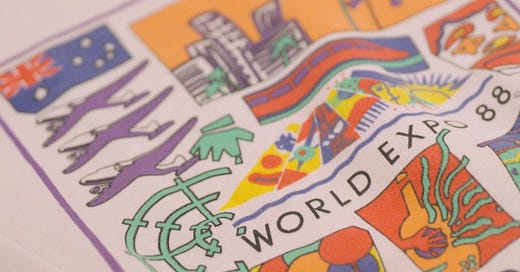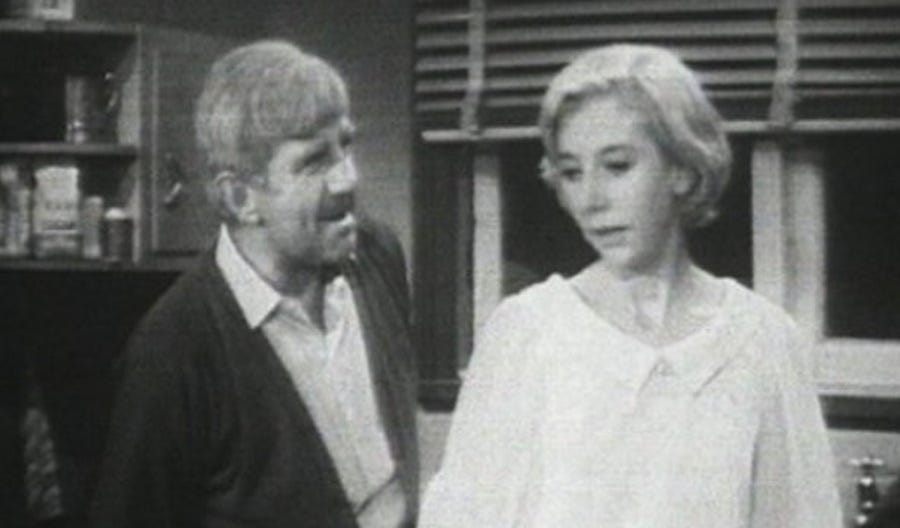How the Eighties changed everything
What Olympics organisers can learn from the River City's decade-long coming of age
(Source: Museum of Brisbane)
The 1982 Commonwealth Games. The opening of QPAC in 1984. World Expo 88.
They were the three big events that changed Brisbane forever. It entered the Eighties as a “big country town” and ended them as an exciting, mature, confident — yes, even “world-class”, city.
I lived through it all but was reminded of just how important that decade was in shaping the River City and the Sunshine State while recording a new podcast series this week. (More on that in future missives.)
It occurred to me that modern Brisbane would not have taken shape without those big events. And they were initiated by a state government that was seen to be backward and extremely conservative.
Perhaps then-premier Joh Bjelke-Petersen was mostly interested in the building of infrastructure — he famously equated progress with the number of construction cranes in the CBD — but in doing so he laid the foundations for a dynamic cultural shift as well.
The election of Wayne Goss towards the end of the decade reflected a great reset in the way our city and state saw itself and its place in the world.
Brisbane now has less than a decade to piece together two of the world’s biggest events, the Olympics and Paralympics Games. The challenge is to pull off not only a sporting celebration to remember, but to build a foundation for what happens next.
Wouldn’t it be great if those Games could be followed by a new cultural renaissance?
Would you welcome another Expo? Or is there something else that would make a big difference to our city, the way we feel about it and the way it projects itself to the nation and the world? Let me know!
STARS OF YORE
Gordon Chater with Judi Farr in My Name’s McGooley ...
My nostalgia gene was also activated a few days ago when I saw a social-media post from Barry Creyton, the US-based actor, director and writer possible best known in Australia for his role in the groundbreaking TV satire The Mavis Bramston Show.
He pointed out that his play Double Act, which has already been produced around the world in more than 20 languages, was about to make its debut in Poland.
Not a bad effort for a boy from Brisbane State High School who cut his teeth on the amateur stage.
This got me thinking about other Queenslanders who has trod the boards or lit up the silver screen nationally and internationally.
And, while I am well aware that Queensland can claim Designated Survivor’s Ben Lawson and his brother Josh, Jacinda Barrett, Adelaide Clemens, and Dalby’s own Margot Robbie, along with dozens of others who are currently making their name by plying their craft, I want to narrow the list down a little.
This is all about the stars of my generation or, like Barry, a little earlier, including a few big names from my youth who are no longer active or, sadly, no longer with us.
I’m talking about the likes of Geoffrey Rush (born in Toowoomba, educated in Brisbane), Mad Max director George Miller (from Chinchilla); Carol Burns (who rocketed to fame at home and abroad in Prisoner, and had hundreds of stage credits), and Bille Brown, the “boy from Biloela” who became a star at home and in the UK (and, in his later years, a friend of mine).
I also recall Brisbane-born Leonard Teale, who starred in the Australian TV series Homicide as David “Mac” MacKay, and later toured the country — including a visit to my school — with poetry readings.
Not every big star had the good fortune to be born in Queensland, but many of them did choose to make it their home later in life.
The Gold Coast proved to be a popular spot with the likes of multi-Logie-Award-winning Hazel Phillips, Blankety Blanks star and popular performer in the music-hall tradition Ugly Dave Gray, and British superstar Max Bygraves, who chose to retire here.
Then there was the great Gordon Chater, who starred in Australia’s first big sitcom, My Name’s McGooley, What’s Yours? and toured internationally with the one-man play The Elocution of Benjamin Franklin, and retired to Labrador.
I know I’ve missed a lot of names here. Can you help me create a longer list?
SEE ME, HEAR ME
This is your regular reminder that I am also messing about on YouTube. The Radio Bert channel features a variety of content, some of it experimental. Your feedback is very welcome.
To get you started, here’s a video of a train at Central Station:






The current crop of arts leaders (“stayers and returners” to adapt idea from Matt Condon’s book “Brisbane”) were forged in the late 80s and early-mid 90s. As a collective we are collaborative, inclusive and have passionate vision for the city in the runway to 2023 and beyond. Some great work underway led by the Committee for Brisbane. Converging arts and culture with business, commercial sectors and policy at all levels of government. An exciting time. When the 80s catch up happened there was scant cultural infrastructure and expertise here to support our artists and stories. That has changed. The future is exciting for our city. Great provocation Brett, thank you.
This may be an unpopular opinion but I think the Brisbane renaissance which took place between (say) 1985 and 1995 was basically an exercise in 'cultural catch up' with our southern cousins. Since then we have become basically indistinguishable from Sydney and Melbourne, all be it on a smaller scale. The challenge in the lead up to the Brisbane Olympics is not only planning for and managing future growth and leisure facilities, but working out how to build things in a way that identify us as a sub-tropical city with a distinctive past and not just another cookie cutter 'world city'. The proposed extension of South Bank provides one such opportunity.